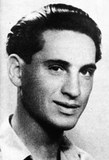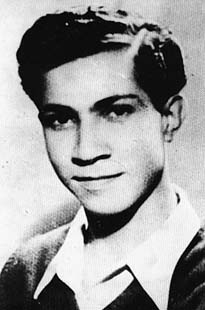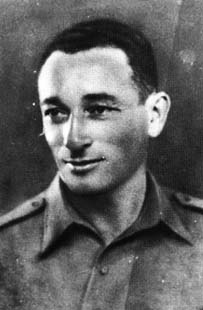Which country was caught as they:
- Posed as Muslims & carried out a false flag terrorist attack against America & UK in the Lavon Affair
- Posed as Muslims & carried out a false flag by bombing the Hotel King David killing 91 Brits
- Massacred 260 Arab residents of the village of Deir Yassin
- Posed as Egypt & committed a 2-hour terrorist attack against America bombing the USS Liberty (34 dead)
- Stole over 1 MILLION American documents & sold to Russia during Cold War??
- Caught and arrested on 9/11 in NYC in a van packed full of explosives trying to blow up the George Washington Bridge??
- Caught posing as Muslims trying to blow up the Mexican Congress in 2001???
- Posed as Muslims & carried out a false flag terrorist attack against America & UK in the Lavon Affair
- Posed as Muslims & carried out a false flag by bombing the Hotel King David killing 91 Brits
- Massacred 260 Arab residents of the village of Deir Yassin
- Posed as Egypt & committed a 2-hour terrorist attack against America bombing the USS Liberty (34 dead)
- Stole over 1 MILLION American documents & sold to Russia during Cold War??
- Caught and arrested on 9/11 in NYC in a van packed full of explosives trying to blow up the George Washington Bridge??
- Caught posing as Muslims trying to blow up the Mexican Congress in 2001???
A GRENADE BETWEEN HEARTS

Feinstein
In the death cell in the central prison in Jerusalem, Feinstein and Barazani resolved to blow themselves and their executioners up. They wrote to their comrades in adjacent cells:
Brethren, greetings. You have not done well in failing to send it to us. Who knows if by morning it will not be too late. Do not allow time to lapse. Send it to us as soon as possible. All you have been told was merely an emotional storm which passed swiftly. We are fully resolved. Our greetings to all. Be strong and so will we. M.F., M. B.
In the death cell in the central prison in Jerusalem, Feinstein and Barazani resolved to blow themselves and their executioners up. They wrote to their comrades in adjacent cells:
Brethren, greetings. You have not done well in failing to send it to us. Who knows if by morning it will not be too late. Do not allow time to lapse. Send it to us as soon as possible. All you have been told was merely an emotional storm which passed swiftly. We are fully resolved. Our greetings to all. Be strong and so will we. M.F., M. B.
|
Barazani
"It" referred to the two grenades which Feinstein and Barazani planned to hurl at the executioners when they came to escort them to the gallows. The idea was not new; it had been broached when Dov Gruner was in the death cell awaiting execution. The explosives were smuggled into the prison in parcels of food earmarked for prisoners who received "special treatment". When Dov Gruner was moved with his comrades to Acre prison, the explosives were left behind in the Jerusalem jail. It was not easy for the Irgun and Lehi prisoners to carry out the wishes of their condemned comrades, but each of them knew that if he had been in their place, he would have asked the same. On the day on which they received confirmation of their request from the Irgun and Lehi headquarters, the prisoners started to prepare the grenades. They sliced off the top of an orange, scooped out the fruit and filled the space with gelignite and small metal strips. Into this they inserted detonators connected to a fuse. Finally, the top of the orange was replaced with thin toothpicks, so that it appeared intact. Three times a day, the condemned men were handed food prepared by inmates who worked in the kitchen. The prison guards, who examined the food carefully, were accustomed to the sight of oranges, and passed them through without particular scrutiny. A basket of fruit was prepared, which included two 'special' oranges. The food was taken into the cell by one of the non-political prisoners, and a note on a tiny scrap of paper hidden in the leftovers was removed from the cell: |
Greetings, dear friends. We have received the "press". Everything is clear to us, and we rejoice at this last opportunity to take part in avenging our four comrades.
As for us, we are convinced that our organizations will avenge us to the proper degree and in the proper fashion. But they may take us by surprise and move us to Acre, and therefore please ask outside that they prepare the same thing for us in Acre, so that we can be sure of doing it.
We are strong. Shalom. M. Feinstein and M. Barazani.
On Monday, April 21, 1947, about a week after the hangings at Acre, curfew was imposed on Jerusalem and it was rumored that Feinstein and Barazani were about to be executed. At 9:15 in the evening, British officers arrived at the home of Rabbi Yaakov Goldman, chief rabbi of the prison, and asked him to accompany them to the central prison.
They did not give reasons, but it was clear to all that Feinstein and Barazani were about to be hanged. Rabbi Goldman was taken into the death cell, and tried to hearten the two fighters. He read the Viduy (confession) and, at the request of Feinstein, they sang the Adon Olam (the most hail and praise to God prayer). Then the two condemned men sang Hatikva, and the rabbi left with the prison governor, promising to return to be with them in their final hour.
Feinstein and Barazani did not reveal their secret to the rabbi, but urged him not to return for the execution. The rabbi was adamant, and in order not to hurt him, the two decided to change their original plan and to blow themselves up before the hangman arrived. About half an hour after the rabbi's departure, two explosions were heard from the cell:
Moshe and Meir stood embraced. The grenades were held between them, at the height of their hearts. Meir lit a cigarette, with which he ignited the fuses that Moshe held, and they died together as heroes.
On the instructions of the chief rabbi, Rabbi Yitzhak Halevi Herzog, the two men were buried on the Mount of Olives in the section of the martyrs of the 1929 and 1936-38 riots. Rabbi Aryeh Levin (the prisoners' rabbi) and Benyamin Feinstein, Meir's brother, eulogized them at the graveside.
The courageous stand of the underground fighters in their final hour won them great esteem in Eretz Israel and throughout the world. A new generation had emerged in Palestine, ready to sacrifice itself for the noble objective of liberating its people and country. The poet, Nathan Alterman, who was an opponent of the Irgun and Lehi, published a poem in praise of Feinstein and Barazani in 'Davar', the Histadrut newspaper.
As for us, we are convinced that our organizations will avenge us to the proper degree and in the proper fashion. But they may take us by surprise and move us to Acre, and therefore please ask outside that they prepare the same thing for us in Acre, so that we can be sure of doing it.
We are strong. Shalom. M. Feinstein and M. Barazani.
On Monday, April 21, 1947, about a week after the hangings at Acre, curfew was imposed on Jerusalem and it was rumored that Feinstein and Barazani were about to be executed. At 9:15 in the evening, British officers arrived at the home of Rabbi Yaakov Goldman, chief rabbi of the prison, and asked him to accompany them to the central prison.
They did not give reasons, but it was clear to all that Feinstein and Barazani were about to be hanged. Rabbi Goldman was taken into the death cell, and tried to hearten the two fighters. He read the Viduy (confession) and, at the request of Feinstein, they sang the Adon Olam (the most hail and praise to God prayer). Then the two condemned men sang Hatikva, and the rabbi left with the prison governor, promising to return to be with them in their final hour.
Feinstein and Barazani did not reveal their secret to the rabbi, but urged him not to return for the execution. The rabbi was adamant, and in order not to hurt him, the two decided to change their original plan and to blow themselves up before the hangman arrived. About half an hour after the rabbi's departure, two explosions were heard from the cell:
Moshe and Meir stood embraced. The grenades were held between them, at the height of their hearts. Meir lit a cigarette, with which he ignited the fuses that Moshe held, and they died together as heroes.
On the instructions of the chief rabbi, Rabbi Yitzhak Halevi Herzog, the two men were buried on the Mount of Olives in the section of the martyrs of the 1929 and 1936-38 riots. Rabbi Aryeh Levin (the prisoners' rabbi) and Benyamin Feinstein, Meir's brother, eulogized them at the graveside.
The courageous stand of the underground fighters in their final hour won them great esteem in Eretz Israel and throughout the world. A new generation had emerged in Palestine, ready to sacrifice itself for the noble objective of liberating its people and country. The poet, Nathan Alterman, who was an opponent of the Irgun and Lehi, published a poem in praise of Feinstein and Barazani in 'Davar', the Histadrut newspaper.
Page: 2 - 1


